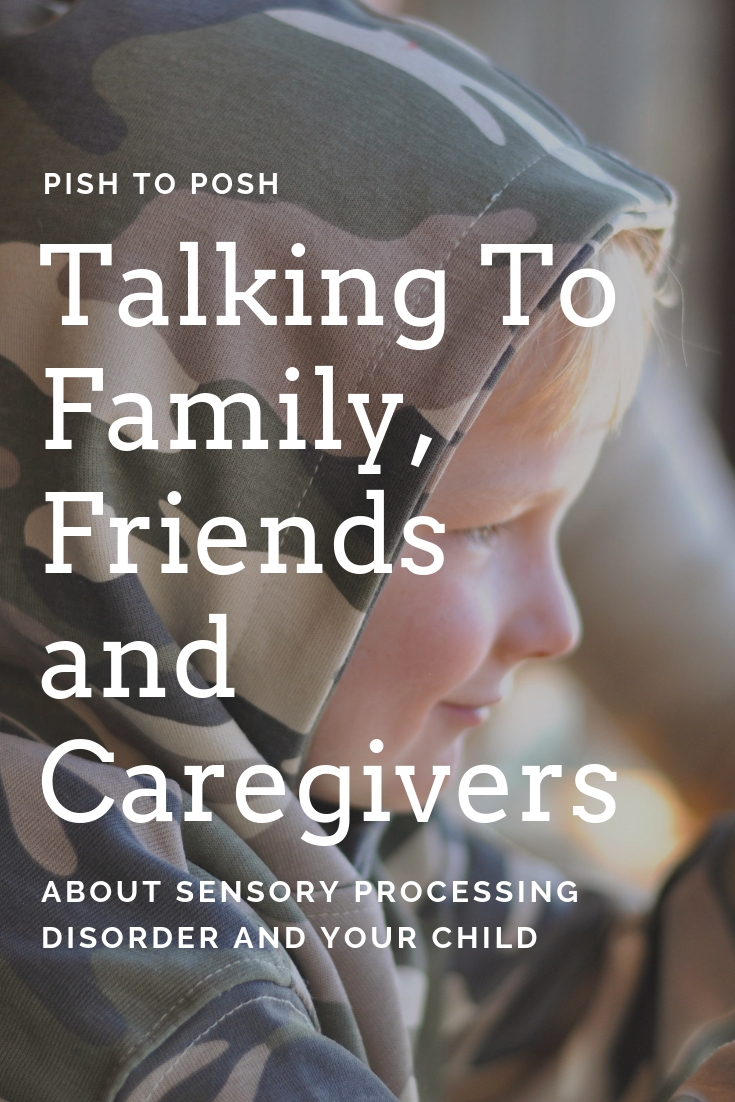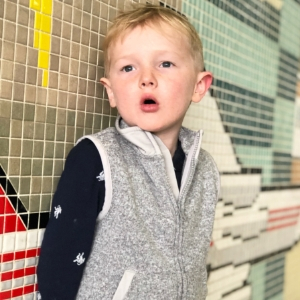Talking to Family, Friends and Caregivers.
When it comes to talking to your family, friends and caregivers about what challenges and struggles your child has in regards to Sensory Processing can be hard. Trying to explain and define your child’s challenges can at times feel like a hopeless cause. But it is a necessity. It is crucial to the long term success of your child.
It can be tough and uncomfortable.
But it is important, possible and can lead to amazing connections and outcomes.
Believe me when I say that I know it can be hard to not only explain sensory processing but also teach others how to support your kid. There will always When it comes to explaining and then offering ideas on how to support your child it is one of the most important things you can do as a parent. Whether you child is severely impacted or you are just beginning to dabble with sensory integration ensuring that grandparents, caregivers and friends are informed is crucial to success for your child.
They say it takes a village to raise a child. Whoever “they” are have hit to nail on the head. So let’s make sure you have some tips and strategies for having those conversations with grandparents, family, caregivers and friends. Because despite how tough it may be to talk to the “non-believers” it is sooo important that you child is supported no matter who they are with.

Let’s get the village on team SPD!
Below are a my best tips and advice on how to have conversations with family, friends and caregivers. Some of these have been very successful for me and my family. Take what you think will work and PLEASE leave any advice you have below.
Be Honest and Be Truthful
This is by far my best advice. Do not hide the fact that you child has sensory processing challenges. Upon diagnosis share what the doctor/therapist says. Share what aspects of sensory they struggle with and be truthful about how they are being affected. Be honest in how you approach the situation and be truthful in how this will affect those around your child; including yourself.
Give Examples
I have found this to be extremely helpful in helping friends, family and caregivers understand Declan and his SPD. Providing people will specific examples of what types of behaviors may be sensory related can really help others feel more competent.
For example (check out that pun :-)) I have shared with others that when Declan is constantly rubbing the walls, someones arm, the counter, the clothes in a store, the couch cushions or even the dog he is needing sensory input. I try to share that he is probably needing both a tactile stimulation and also having a hard time arranging his body in space and needs some proprioceptive input. This helps others pinpoint other examples on their own and are able to understand a bit more.
Invite Them To Therapy
If you are attending therapies of any kind it can be helpful to invite family member along. This gives them an in depth look at the work the therapist does and allows them to see exactly what needs therapy is meeting. Upon completion of therapy take the opportunity to explain to them what the therapist did, why she did and what aspect of SPD she was working on.
I took my dad to Declan’s occupational therapy appointment last week. And he was fascinated and a bit confused. But I was able to talk to him about why the therapist spend 30 mins having Declan work on a swing, what it did to help his sensory needs and how much progress he has made since the first appointment. My dad now has more involved interaction with Declan and will begin to see more sensory things as time goes on.
Share Resources You Have Found Useful
Because I am dealing with SPD everyday I am constant looking for resources. I am always reading articles, listening to podcasts, buying books and trying new things with Declan. It is unrealistic to think our friends and family would have the same passion for finding resources. But you can share all the you find. Well, maybe not everything! But the good stuff. If you kiddo is an avoider make sure you stick with only resources related to avoiders. If you kiddo struggles with vestibular make sure to share your favorite articles and podcasts about vestibular challenges.

Recently I shared a post about The Sensory Project and all the wonderfulness you will find there. I have told all my family about this resource and specifically told them which podcasts episodes to listen to. While I want to share everything about SPD I am cognizant to share what is relevant to Declan… to ensure I do not confuse anyone.
Be Positive and Avoid The Battle
What I mean by this is that it is not your job to convince someone (even your family) your child has sensory processing disorder or struggles with sensory challenges. Sure you want to bring up all the points and notes from the evaluations and talk about the emerging research and really PROVE your point… but I promise it won’t work. Be positive and provide explicit and direct examples of how sensory affects your child. Do not try to prove or convince someone who does not want to believe. I know this can/could be challenging. BUT you are here to support and help your child. Not defend your child.
Build That Support System: Talk To Your Friends & Family
At the end of the day your number one job is to love and cherish your child. I know you are the very best mother to your child… no matter what else is going on. Allowing others to travel along with on this road of SPD will be rewarding. Make sure when you are talking to them you are positive, you include them, you are give examples and you are truthful will make all the difference in the world.
With Love,


